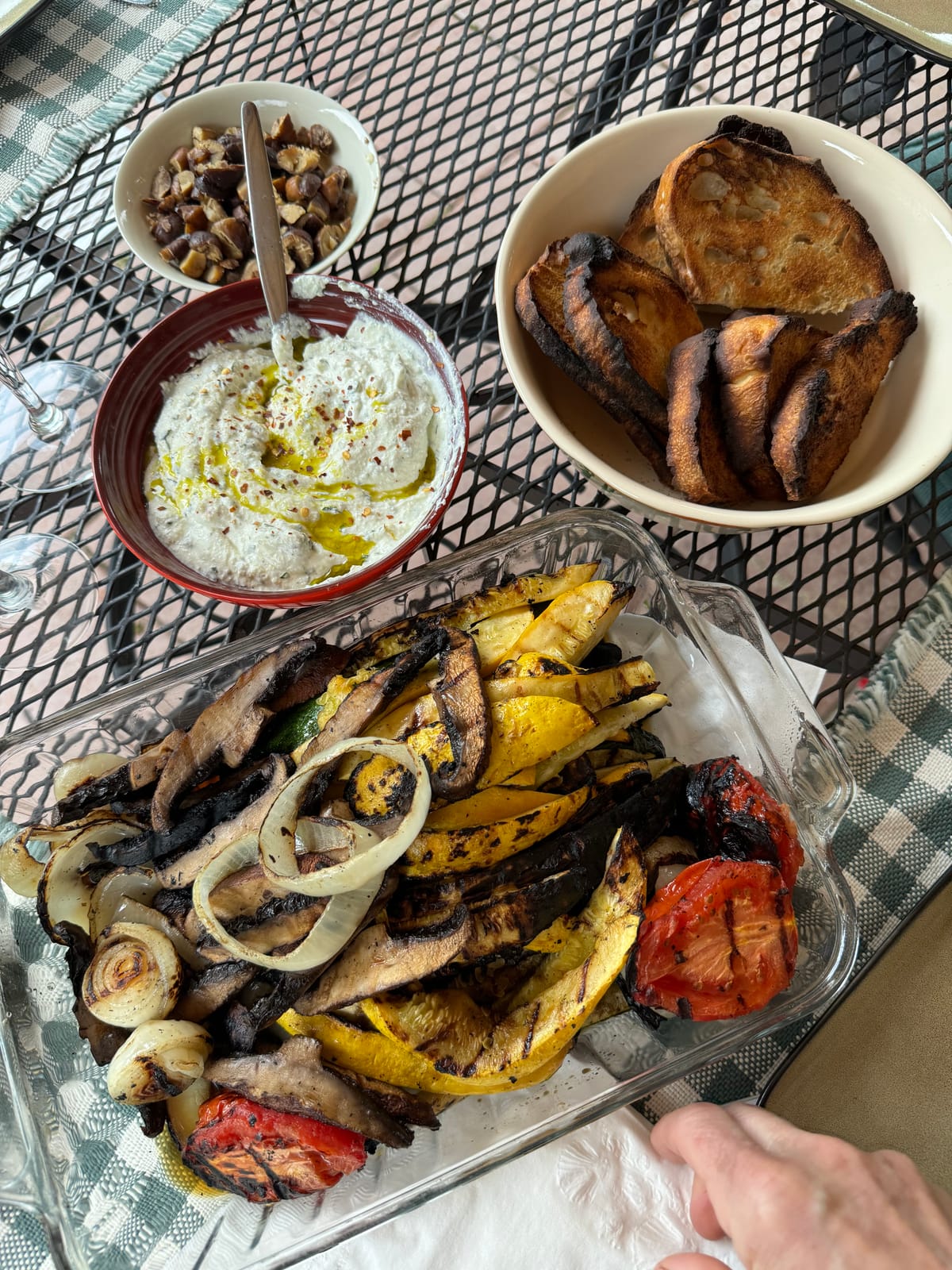I came across the term "self health-ing" a few weeks ago while perusing the internet for folks who are reclaiming autonomy over their own wellness. A pub-med review of this term yielded a beautiful article about the power of self-healing - a qualitative study of older adults in Taiwan (2022; source):
Self-healing is the main bridge between treatment and health. It goes beyond traditional medicine, from back-end disease treatment models to front-end disease prevention and health promotion, and evokes an individual’s power of self-recovery.
On that note, dear reader, I aim to not only help you understand your microbiome but also provide tools for you to take matters into your own hands. Autonomy over your own wellness starts with what you put into your living, breathing body each day. Why care about what's in your food? One big reason to do this is to improve the nutrient density of your diet (organic produce has up to 200% of the nutrition that conventional produce contains), but changing what you eat also leads to improvement in your microbiome. Think: emphasis on whole, unprocessed foods, as direct and local from the source as possible. (CSA vegetables from farms that don't use pesticides. Buying whole cows and eating the whole dang thing - including organ meat! Unprocessed dairy.)
But worry not, dear reader - you don't have to eat a beef liver to improve your wellness and your microbiome. Here are some tips that I hope you find helpful and accessible. Try just one!
HOW TO HEAL YOUR MICROBIOME.
Eat real food, especially plants. And eat the whole vegetable (or fruit!).
With the exception of things like banana peels and the pits of apricots, you can eat most of the fruit safely - even apples. I eat everything but the stem. In addition to the incredible phytonutrients in the skin, there are an abundance of microbes that are gifted to the plant from the soil and surroundings it grew in. (Rinse your fruits and veggies before eating, but a little dirt here and there isn't going to kill you. In fact, it might be helpful.)
Avoid refined and added sugars and processed foods.
Review the NOVA scale for guidance.
A good rule of thumb is to have < 20 g sugar/day for women, < 30 g sugar/day for men. Ideally it's zero, but these guidelines are reasonable, and any reduction is a win.
Eat fermented foods regularly (ideally, daily!). Options include the following:
- sauerkraut, kimchi, miso, pickled vegetables. you can even ferment your OWN veg for cheap! learn how from my mentor, Dr. Amy Sapola.
- (I like to add a scoop to my plate of roasted veg / protein / carb for lunch and dinner, or to my salad.)
- aged cheeses, yogurt (ideally ORGANIC, greek or skyr or dahi or plain, unsweetened, whole milk or low fat but not nonfat)
- kombucha (look for brands like GT's that must be refrigerated and have NO added sugar - all the sugar should be naturally occurring from the fermentation process)
Eat prebiotics. These are "food" for the microbes in your gut - fiber!
- nuts and seeds, beans and legumes, whole and unrefined grains (i.e. whole oats, buckwheat grouts, millet, etc), cruciferous vegetables (broccoli, cauliflower)
- Aim for 20+ grams per day!
Do things outside. Get a little dirty.
Exposure to soil, animals, and plants equals more diversity! Studies suggest getting dirty as a child (and eating lots of potential "allergenic" foods early!) makes for a healthier lifetime.
Rethink your household products.
A 2023 study revealed that commonly used dishwasher detergents were harmful to the cellular barrier in the gut. Consider changing your dish detergent, your laundry detergent, and your other household products. I really dig the below handout from the American Lung Association if you really want to take things into your own hands and make your own safe cleaning supplies.
Julie Foucher, MD, suggests replacing products one by one when you run out, so you do not feel overwhelmed by the burden of researching, purchasing, and learning to use your new products.

